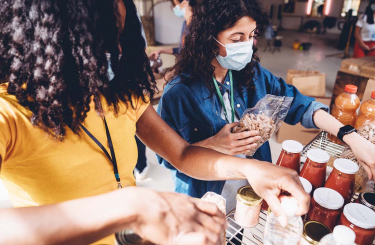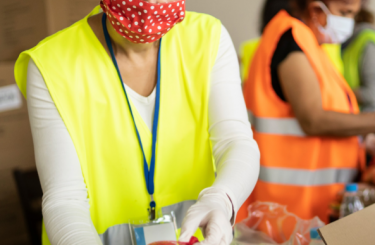Related



For our Day of Action on the cost of living crisis, we asked our member, Smallwood Trust how they are responding to the crisis.
The Smallwood Trust has been helping women across the UK out of poverty for 135 years. Our programmes provide grant funding and support to enable women to become financially resilient and to ensure economic systems work for them rather than against them. Half of the UK population is female – therefore our approach not only matters for individual women, enabling them to thrive economically and overcome financially stressful events, it is also critical for the UK economy, never more so than now, in the midst of the cost-of-living crisis.
Demand for our funds throughout 2022 has been greater than ever. Out of this year’s grants budget of £2.4 million, excluding any external funds raised, 70% of our funds are being awarded to meet immediate needs, supporting our grant partners and individual women through the cost-of-living crisis, which has quickly followed on from the coronavirus pandemic. Both of these major external events have affected women disproportionately according to the Women's Budget Group. The other 30% of our funds are awarded for longer-term strategic initiatives that tackle the root causes of gendered poverty.
Demand for our funds throughout 2022 has been greater than ever
One of our key approaches to targeting the cost-of-living crisis is through our community grant partners who receive a block grant from Smallwood including overhead costs, as well as an operational toolkit, and evaluation support and funding to award onwards grants to individual women integrated with their specialist support services. Recently we undertook some qualitative research with Smallwood’s community grant partners, who are at the sharp end of responding to the cost-of-living crisis. Their feedback included:
For women
Basic essential needs are not being met forcing more women and their families into poverty – all of the grant partners we contacted reported back that they are providing food, toiletries, financial assistance with bills, school uniforms, payment of priority debt such as rent arrears, flooring, beds, other everyday living expenses.
Sarah Parry, Programme Manager at Inspire at St Peter’s observes:
We are now finding that there is a higher level of desperation amongst women in our community. Women literally cannot feed themselves and their children, in my career I have never seen a greater step towards absolute poverty
This will disproportionately affect women most vulnerable to poverty. The Women’s Budget Group reports that a deterioration in living standards will have the greatest impact on disabled women, ethnic minority women and single mothers. Because of such desperate situations, we found that mental health problems, anxiety, and depression are increasing and/or being exacerbated.
Many women our community grant partners support have experienced/are currently experiencing domestic violence and report that the cost-of-living crisis is being weaponised by perpetrators to further control women and restrict their independence.
For organisations
Smallwood community grant partners underlined worries about well-being and burnout of staff, who having come through the height of the pandemic, and are now faced with the cost-of-living crisis demands.
Staff are also struggling to make ends meet as grant and commissioning contracts, which fund a lot of staff posts in the women’s sector, will not include an uplift anywhere near the rise in inflation. Research also suggests that lower pay in the women’s sector is more prevalent than in other parts of the voluntary sector in general. This then leads to worry about staff leaving to get better wages elsewhere.
Meanwhile, local authority cuts to services are increasing demand for women-led led services as women have nowhere else to turn to. Simultaneously grant partners report increasing competition for grant funds from ‘non-specialist’ organisations.
Those organisations with women’s centres or refuges are seeing a huge spike in utility bill increases that have not been previously budgeted for, or grants will not cover for the future. In addition to this, very low levels of reserves can restrict the ability of smaller organisations to respond more effectively.
Research also suggests that lower pay in the women’s sector is more prevalent than in other parts of the voluntary sector in general
As a specialist women's funder with a mission to end gendered poverty, we are acutely aware of the multiple crises currently affecting low-income women. Our new Strategic Plan for 2022-2024 outlines how we will continue to tackle both the immediate symptoms and root causes of gendered poverty within our own financial capacity.
In June of this year, we created a £250,000 cost-of-living fund for individuals as an initial short-term response – this enabled us to transfer funds directly into individuals' bank accounts who were most at risk from the cost-of-living crisis.
In the next couple of months, we will be awarding c.£1.7 million in new multi-year grants to re-fund our community grant partners. This includes funding to help top up existing staff salaries and meet rising demand.
By the end of 2024, we are aiming to invest £8.5 million in grants and support costs. Though we are continuing to increase the funding available from our own investments, compared to pre-pandemic levels, we are open to co-funding, collaborating, and developing partnerships with other funders, local and national, and other stakeholders.
For further information about Smallwood’s grant programmes please contact kathysiddle@smallwoodtrust.org.uk


